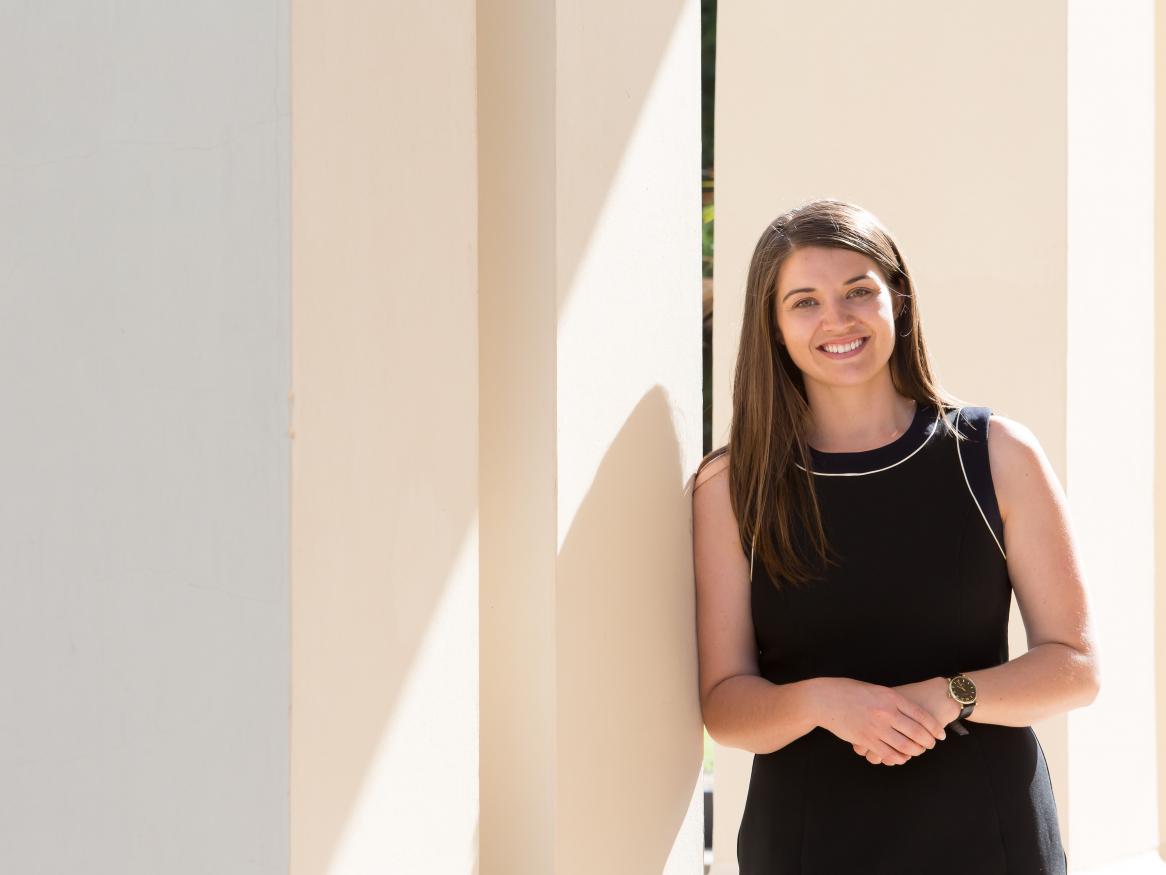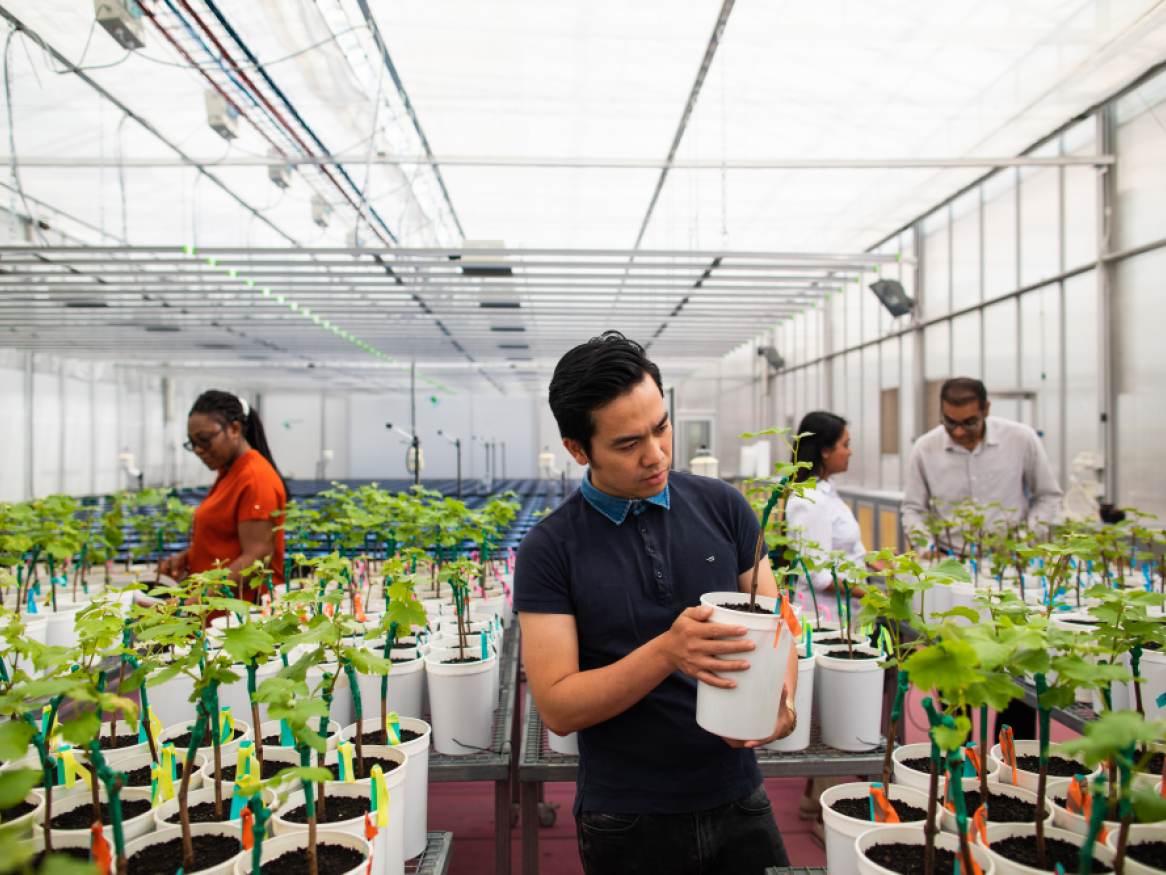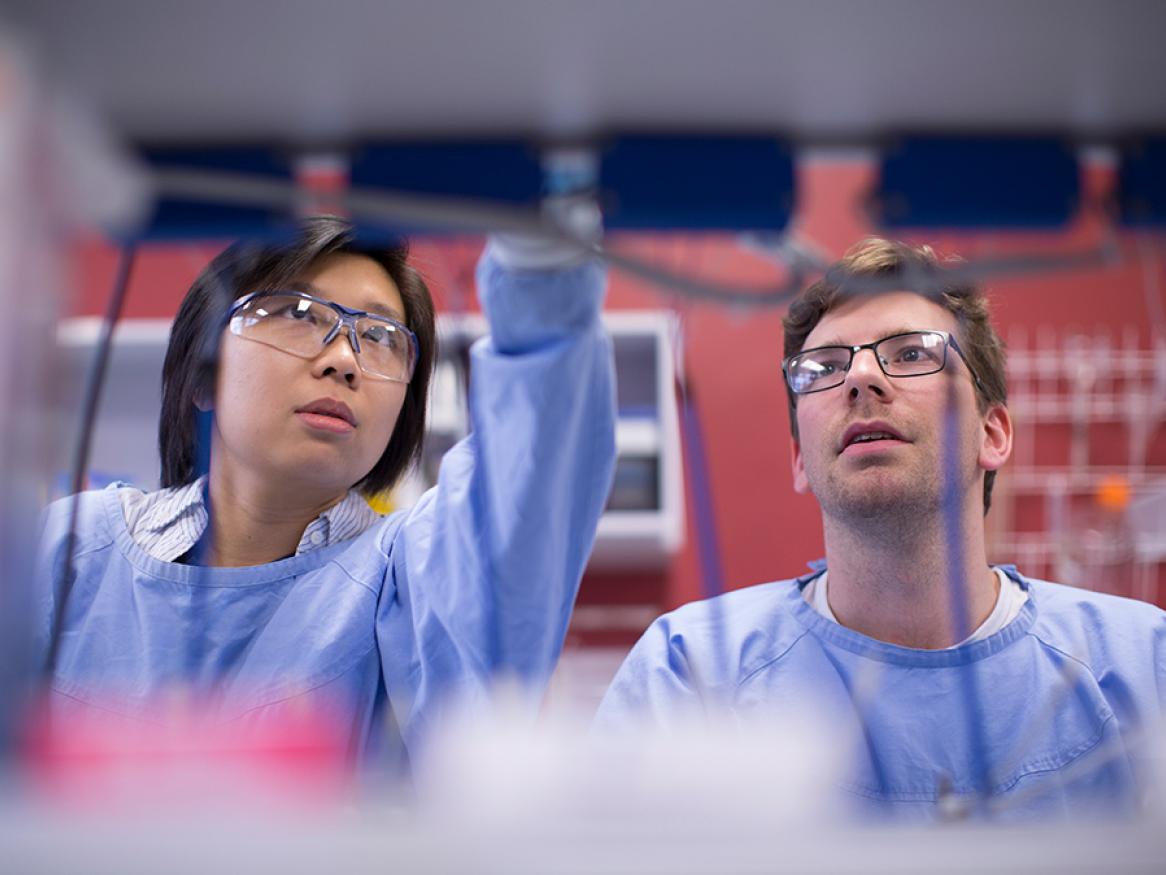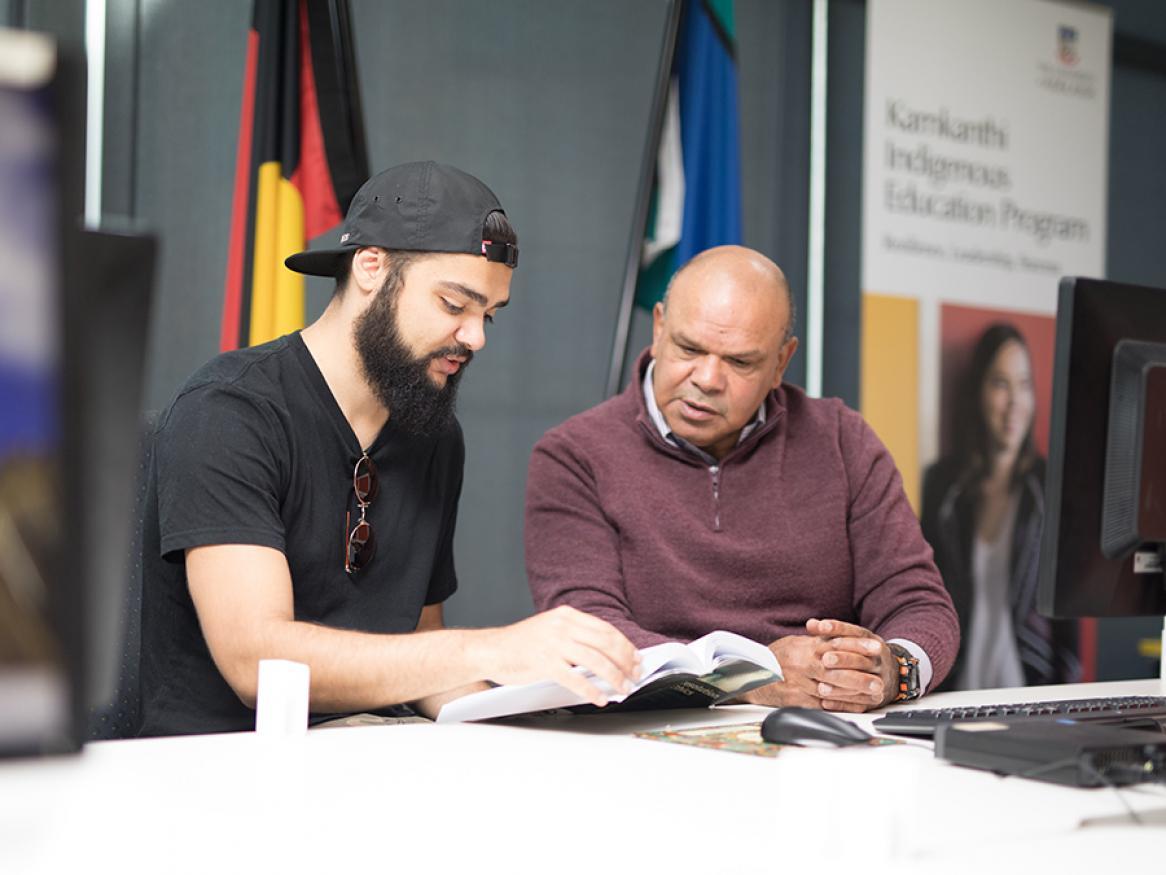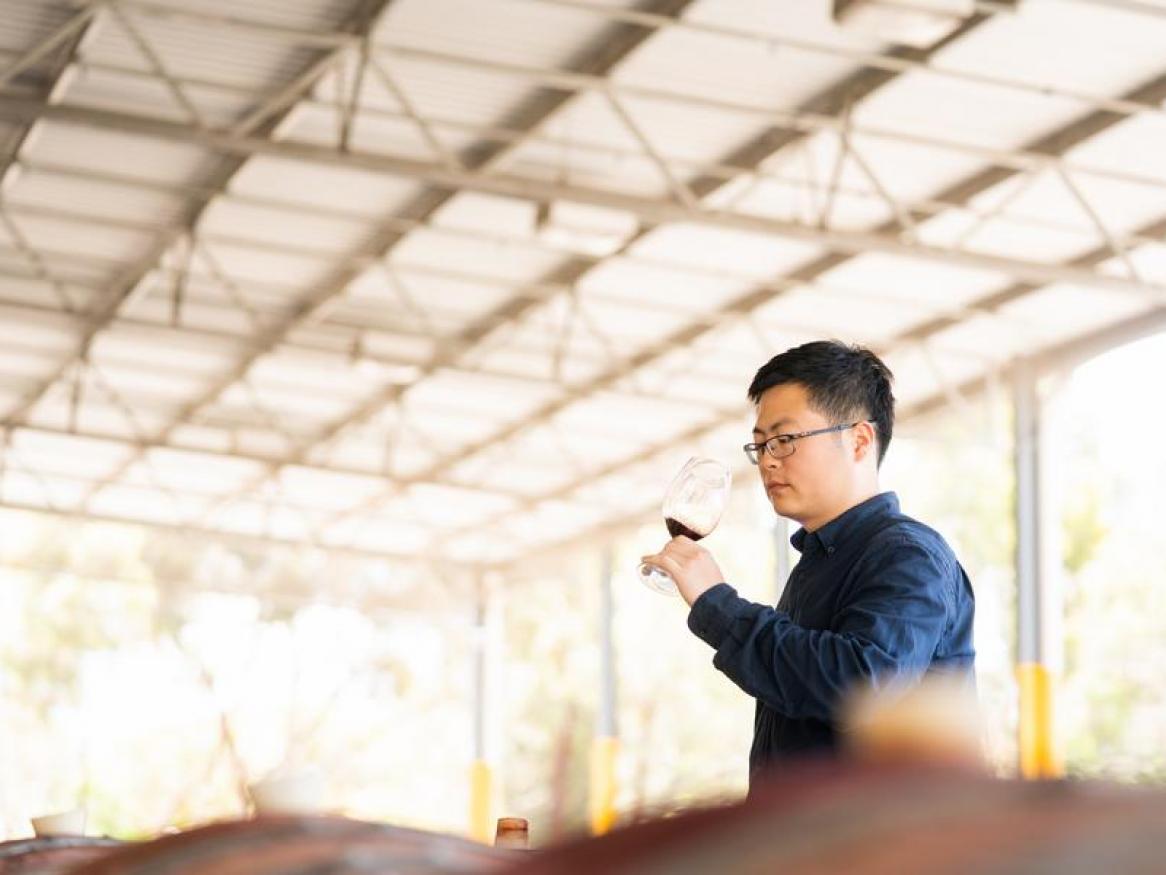Scholarships

There are a range of government and University funded scholarships available to support you during your Higher Degree Research (HDR) candidature. These scholarships provide support with a range of expenses associated with undertaking HDR research including living expenses, tuition waivers, and ancillary costs associated with your research.
HDR scholarships can include one or more of the following types of support*:
- Stipend – this is a living allowance paid to the student fortnightly for the duration of the scholarship to help with living expenses. Please be aware that stipends are intended to contribute towards living expenses for the student themselves and may not be sufficient to fully cover the cost of living, particularly if accompanied by dependents.
- Fee Offset/Waiver – this pays tuition fees that would otherwise be paid by the student for the duration of the scholarship. Note: this is a financial arrangement within the university and is not paid to the student.
- Allowances – reimbursement for costs associated with undertaking HDR research such as relocation costs, and Overseas Health Cover.
* NOTE: If you are successful in obtaining a scholarship, your offer letter will provide details of which, if any, of these types of support you have been awarded.
Adelaide University Scholarships 2026
The scholarships on this page are no longer open for applications. Current recipients will maintain their scholarship when they transition to Adelaide University.
Visit the Adelaide University website to find an available scholarship.
-
Scholarships Available for HDR Students
-
Summary of Main HDR Scholarships
Name Eligibility Duration Value Research Training Program Stipend (RTPS)
Applicants must:
Hold a relevant Bachelor Degree with Honours or equivalent
Doctor of Philosophy = up to 3.5 years
Master of Philosophy = up to 2 yearsStipend = $35,300 p.a. (2025 rate)
Fees Offset (Domestic Students)/ Tuition Fee Waiver (International Students)
Allowances = Overseas Student Health Cover (International Students only), Relocation allowance, Visa Entitlements and Requirements, Early Submission allowanceResearch Training Program Stipend for Indigenous Students (RTPS) Applicants must:
Hold a relevant Bachelor Degree with Honours or equivalent
Doctor of Philosophy = up to 3.5 years
Master of Philosophy = up to 2 yearsStipend = $52,352 p.a. (2025 rate)
Tuition Fee Waiver
Fees Offset (Domestic Students)/
Allowances = Relocation allowance, Early Submission allowanceUniversity of Adelaide Research Scholarship (UARS)
Applicants must be eligible to hold admission into a Higher Degree by Research (HDR)
Doctor of Philosophy = up to 3.5 years
Master of Philosophy = up to 2 yearsStipend = $35,300 p.a. (2025 rate)
Fees Offset (Domestic Students)/ Tuition Fee Waiver (International Students)
Allowances = Overseas Student Health Cover (International Students only), Relocation allowance, Early Submission allowanceSee conditions of award for further details
-
Finding Information about HDR Scholarships on Offer
Information about all of the HDR Scholarships on offer can be found in the University Scholarships Database. The database includes scholarship opportunities for future, current and past students, such as external funding opportunities and travel scholarships.
Entries in the database include information about the background of the award, what is included, eligibility criteria, and how to apply for the award.
The database is updated on a continuous basis as awards become available. If you are seeking a scholarship, you should check the database regularly so that you do not miss an opportunity.
-
Applying for HDR Scholarships - Opportunities in the Competitive Rounds
Scholarships are mainly awarded in competitive rounds that align with the primary intakes of students at the start of the year and mid-way through the year. These rounds are known as the Major Round (February/March intake) and the Midyear Round (July/August intake).
Separate Major and Midyear rounds are held for domestic and international applicants. This ensures that successful international applicants have sufficient time to make the arrangements to move to Australia while also providing sufficient time for domestic students to complete any current programs before the round is held.
Scholarships Available in the Competitive Rounds
Two principal types of major scholarships are offered in the competitive scholarship rounds: Australian Government Research Training Program Scholarships and University of Adelaide Research Scholarships. Whether these scholarships are offered in a specific scholarship round is subject to the availability of scholarships at that time. The scholarship round information tables (see Domestic Round, International Round below) identify which scholarships will be offered in a specific round.
- Domestic and international applicants who hold an Honours degree, postgraduate qualifications with a significant research component, or have significant research experience and/or publications, are considered for:
- Australian Government Research Training Program Scholarships (Domestic, International)
- University of Adelaide Research Scholarships (Domestic, International)
- Applicants who do not hold an Honours degree, postgraduate qualifications with a significant research component, or have significant research experience and/or publications will be considered for the University of Adelaide Research Scholarships (Domestic, International)
Further information about eligibility for these principal scholarships is included in the Conditions of Award.
A range of other scholarships may also be offered during the competitive scholarship rounds, as permitted by funding availability. Information about any additional awards being offered during a specific scholarship round are provided in the online application system. It is recommended that applicants carefully consider the information provided about these scholarships when they complete their application, as applicants may also be eligible for these additional awards.
Domestic Round
The domestic rounds include both domestic applicants and international applicants who are current students or recent graduates of the University of Adelaide. A student is considered a 'recent graduate' if they have completed their University of Adelaide qualification within the last 2 years (4 semesters).
Round Open Date Closing Date Outcomes Major Scholarships on Offer Intake 2025 Minor Round 1 May 2025 8 June 2025 August 2025 Semester 2, 2025 (1 July 2025 - 14 November 2025) 2025 Major Round 1 September 2024 31 October 2024 From December 2024 RTPS
UARSSemester 1, 2025 (1 January 2025 - 30 June 2025) Please note: international students who are applying in the domestic rounds as a current or recent University of Adelaide student will need to apply as an international applicant (see here) within the domestic round application period.
International Round
The international rounds are reserved for international applicants only. International students who are current students or recent graduates* of the University of Adelaide should refer to the Domestic Round Dates – but will need to submit applications using the International application system.
Round Open date Closing date Outcomes Major Scholarships
on OfferIntake 2025 Major Round Closed 16 June 2024 From Mid-September 2024 RTPS
UARSSemester 1, 2025 (1 January 2025 - 30 June 2025) 2025 Minor Round Open 31 January 2025 From Early May RTPS
UARSFrom 30 June 2025 - 14 November 2025 University of Adelaide Students/ Recent University of Adelaide Graduates Rounds
The following students are eligible to apply in these rounds:
- University of Adelaide students who are in the final semester of their current program
- University of Adelaide students who have recently completed their program within the last 2 years (4 semesters)
Round Open Date Closing Date Outcomes Major Scholarships on Offer Intake 2025 Minor Round 1 May 2025 8 June 2025 August 2025 Semester 2, 2025 (1 July 2025 - 14 November 2025) 2025 Major Round 1 September 2024 31 October 2024 From December 2024 RTPS
UARSSemester 1, 2025 (1 January 2025 - 30 June 2025) Refer to the scholarships page for details about Major scholarships available in the competitive rounds.
Scholarship Selection Guidelines for the Competitive Rounds
The number of scholarships on offer in each competitive scholarship round is subject to funding availability and these scholarships are awarded based on merit. Scholarship applications are assessed based on a combination of academic merit, research experience, and alignment with the University of Adelaide’s strategic goals. To provide yourself with the best chance at being selected for a scholarship, ensure that you include as much detail as possible in your application about:
- your qualifications
- your grades
- your publications, and
- your research relevant work experience
If you have previously studied overseas, your qualifications from any overseas institutions will be assessed in comparison to the Australian Quality Framework (AQF). If your grades do not compare with the Australian system, your results will be scaled accordingly to ensure that your application can be assessed fairly.
If you are currently enrolled as an HDR student, please note that in assessing your application consideration will only be given to work completed prior to your current HDR.
Scholarship applications from applicants who have completed a Bachelor degree and no postgraduate qualifications will be assessed using the cumulative Grade Point Average (GPA) from their undergraduate program.
Scholarships are awarded to the highest ranked applicants in the round. Whether an applicant is awarded a scholarship is determined by the quality of their application relative to the other applications in the round.
NOTE: If you are currently enrolled as an HDR student, consideration will only be given to work completed prior to your current HDR.
- Domestic and international applicants who hold an Honours degree, postgraduate qualifications with a significant research component, or have significant research experience and/or publications, are considered for:
-
Applying for HDR Scholarships - Out of Round Opportunities
In addition to the competitive scholarship rounds there are other opportunities which include externally funded major awards, supplementary scholarships, industry programs and placements, allowances for operating costs, and travel scholarships. These scholarships are listed online in the University Scholarships Database. They usually require a separate and specific application and you will find this information attached to the funding opportunity listed.
-
FAQ
Am I eligible for a scholarship?
RTPS and UARS
To be eligible for an Australian Government Research Training Program Scholarship or University of Adelaide Research Scholarship, you must be eligible to enrol in a full-time Higher Degree by Research (HDR) program at the University of Adelaide. For more detailed information regarding eligibility criteria, including specific GPA requirements, program structure and a direct link to the Academic Program Rules, please see the Adelaide Graduate Research School Calendar.
International applicants must also provide satisfactory evidence of meeting the minimum English language proficiency requirements for direct entry by the scholarship round closing date. Further information about what is required can be found here.
Other HDR Scholarships
You must be eligible to enrol in a full-time Higher Degree by Research (HDR) program at the University of Adelaide. For more detailed information regarding eligibility criteria, including specific GPA requirements, program structure and a direct link to the Academic Program Rules, please see the Adelaide Graduate Research School Calendar.
Other advertised scholarship opportunities may have additional eligibility criteria. You should refer to the relevant entry in the University Scholarships Database for further information.
How do I apply for a scholarship?
You will need to complete an online admission and scholarship application. You can find the page to apply here. Please select at the top of the page if you are applying as a domestic or international student, and the page will show you the dates for each scholarship round currently available. Work your way down the steps, read each section and you will be directed how to apply online.
Can I apply for more than one scholarship in the competitive rounds?
Yes, you can apply for as many scholarships as you would like (and are eligible for). However, please be aware that if you are successful, whether you can hold multiple scholarships is determined by the rules of award for the individual scholarship.
Where do I find a supervisor?
For information on how to connect with a supervisor, please see Step 3 of How to Apply.
I am currently completing a Master of Philosophy, and wish to apply for PhD admission & scholarship in the competitive round. What is the deadline to submit my thesis?
Domestic and onshore international applicants completing a Higher Degree by Research qualification in the same semester of application at an Australian university (University of Adelaide only for international students) will only be eligible for consideration if they have submitted their thesis for examination by the scholarship closing date. Note: examination results must be provided within 3 months of the scholarship closing date.Will the publications and/or research experience I have gained since completing my qualification(s) add weight to my application?
If you ensure that your publication(s) and/or relevant research experience is detailed in your application and uploaded Structured CV, it will be considered. However, the Graduate Scholarships Committee will pay close attention to the quality of the journal in which the work is published as well as your contribution to the publication. Research outputs are usually assessed in light of the opportunities you might have had subsequent to your initial graduation.My previous scholarship application was unsuccessful. Can I reapply for a scholarship?
If you have not yet enrolled in your academic program, yes you can reapply for a scholarship. If you have previously applied for admission and a scholarship, and were unsuccessful, you can reapply in any subsequent round.
If you have already enrolled in your academic program, please see the question below.
I have enrolled in my academic program. Can I apply / reapply for scholarships?
Yes. If you are currently enrolled in an HDR and have sufficient candidature left, you can apply for scholarships.
- For a PhD scholarship, you must have a minimum of 2 years candidature remaining as of 1 January (Major Round) or 1 July (Midyear Round) to be eligible to apply for a scholarship
- For a Masters scholarship, you must have a minimum of 6 months candidature remaining as of 1 January (Major Round) or 1 July (Midyear Round) to be eligible to apply for a scholarship.
Please note: Only the work completed prior to your enrolment in the HDR study for which the scholarship is being sought will be considered in assessing your application.
Are there any opportunities for industry placements?
Incorporating industry engagement into your HDR program provides unique opportunities and a strong complement to your academic studies and will give you a head start in future employment opportunities.
More information about these opportunities can be found here: https://www.adelaide.edu.au/graduatecentre/career-development/industry-opportunities
Can I apply for a tuition fee waiver?
The University of Adelaide does not offer tuition fee waiver only scholarships. Tuition fee waivers are associated with major scholarships awarded to students. Please apply in a scholarship round to be considered for a scholarship. If you are successful, a fee waiver will be included as part of your scholarship offer.
When will I know the result of my scholarship application?
Domestic applicants
We will begin releasing outcomes from the date listed for the relevant competitive scholarship round on the website. You will be notified of the outcome of your scholarship application at the same time that you are notified whether you have been successful in your application for admission (i.e. in the same correspondence).
Your scholarship outcome will not be released until all of your academic results have been finalised (and you have provided appropriate evidence to the Adelaide Graduate Research School), and all aspects of your admission application have been approved.
International applicants
We will begin releasing outcomes from the date listed for the relevant competitive scholarship round on the website. You will be notified of the outcome of your scholarship application separately from your admission outcome notification.
There may be compliance checks and other relevant approval processes that need to be completed before a scholarship outcome can be determined. You will be advised of the outcome of your application as soon as a decision is made.
Featured opportunities
Further enquiries
For more information, please ask a question.


